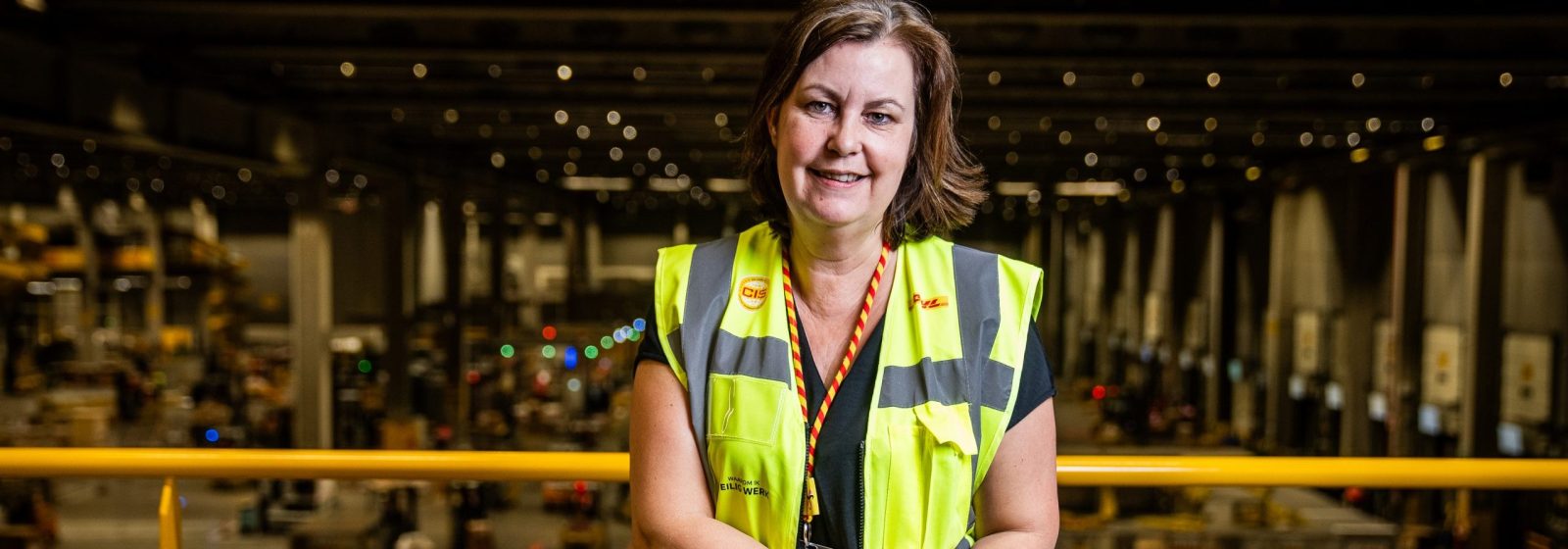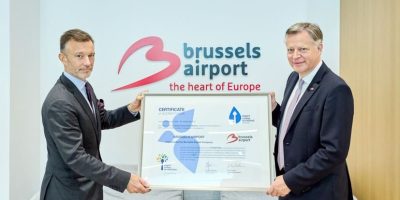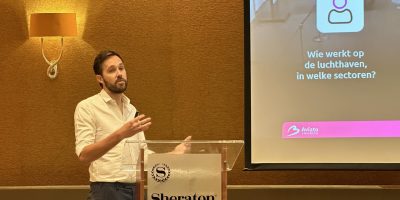
Kirsten Carlier has lost her heart to the air cargo sector. For almost two years, she has been CEO of DHL Aviation. She has no experience of the glass ceiling. “Women often allow themselves to be limited by their own thoughts. I like to give them an informal nudge.”
It is rather by chance that Kirsten Carlier ended up in the aviation sector. She loves planes and the airport, but as a child she used to have a great fear of flying. “After my studies, I started in an HR position at DHL’s European coordination centre. I did that for five years, until in 2008 it was decided to restructure and move operations to Leipzig. I then spent two years mentoring people who wanted to work in Germany.”
When the project was completed in 2010, she went to work in the waste sector and at New Holland Tractor. “Those were exciting and fun years, but every time I saw a DHL truck or plane, I got all warm inside.”
Communicating a lot
In 2017, she returned to DHL as hr director. After five years in the hr department, she applied for the position of CEO. “I am not a specialist, rather a generalist. That’s also where my strength lies. I don’t need to understand everything to manage it.”
Together with the senior management team – responsible for the various branches of the company, from hr over customs to operations and legal – she implements DHL’s strategy and sets it for the coming years.
“We measure this against indicators, figures and KPIs and adjust where necessary. Together with my executive board, I also communicate strategy and progress down to the floor. This communication is often treated as a stepmother in companies. However, it is important that it is concrete for everyone what the priorities are and how they can contribute to them.”
Changing lives
What she finds attractive about the sector is the fact that it can change lives. “That is also our motto and the goal of DHL ‘Connecting people, improving lives’. We do time-critical shipments and these are often medical shipments. The fact that as a logistics company you can make a difference or certain things arrive somewhere on time and intact is fantastic. You are a link.”
“Many employees work at night and that is not always easy. Trucks are sometimes late or planes are delayed. We then go out of our way to make up for lost time to make sure that the customer – be it a hospital or a private individual – still gets the shipment on time. That’s the beauty of the job.”
Glass ceiling
Kirsten Carlier often notes that in meetings with colleagues from Europe or worldwide, she is often the only woman within logistics and air freight. “At DHL, we work day and night. The most important operations happen at night. For women, that is sometimes difficult to combine.”
She herself has never experienced a glass ceiling. “I’ve always felt I could get ahead and do what fascinated me. I often notice that women don’t apply spontaneously if they don’t fit the profile 100%. But when companies ask low-key about their interests and tell them it would be useful to apply anyway, that’s the push they need. I do that myself.”
When employees are unsure if internal vacancies are something for them, they can always drop by informally and confidentially. “People appreciate that and I see that a lot more women come to it. That ensures that those invisible barriers are removed. Women’s biggest obstacle is often their own thoughts and concerns. I try to do my bit there myself and I notice that that is being addressed.”
Leadership
Honesty and openness are important to Kirsten Carlier. People should be able to say what is on their minds. “Conflicts, disagreements or concerns are not avoided. As a team, we go off-site about four times a year. There, we always do ‘speed feedback’ where we discuss two things one-on-one, namely what you admire about the colleague and what the other person can help you with.
I deliberately chose that second question because people don’t like to say what another person needs to improve or change. And that works better. I notice that people actually do something with it.”
She also asks a lot of questions to learn, not to show what she knows herself. “That brings openness and vulnerability. If you decide something together, we also carry it out together. I also always say we, because we decided things together. In the beginning, staff had to laugh at that, but that use of words is important in how people feel about it.”
Volunteering
To relax, she reads a lot. In the evenings, that is her regular ritual. “Even if I come home from work at three or four in the morning, I will always read for half an hour,” she says.
She also likes to travel, along with her children. “I like to visit a market. That can be abroad, but just as well in Antwerp. Taking in those smells and cultures, it’s exactly like being on a trip.”
“I also consciously try to make time for volunteering, at Armen Tekort.” This non-profit organisation aims to combat disadvantaged poverty on a large scale and appeals to employees of companies who help restore the self-esteem of disadvantaged people as buddies. “I usually meet up with my buddy to go to the market or take a walk together. These are activities that don’t cost a lot of money but are nice to do together. That sense of purpose is important to me.”




